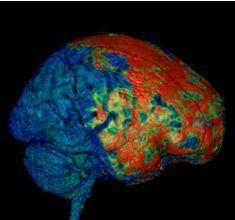 If you want to know the heights of love, compassion, determination, and self-sacrifice that people can rise to, just sit down and talk to someone who is caring for a rare disease patient for 30 minutes or so.
If you want to know the heights of love, compassion, determination, and self-sacrifice that people can rise to, just sit down and talk to someone who is caring for a rare disease patient for 30 minutes or so.
 If you want to know the heights of love, compassion, determination, and self-sacrifice that people can rise to, just sit down and talk to someone who is caring for a rare disease patient for 30 minutes or so. It will be enough to combat any cynicism you feel about the state of the world and humanity.
If you want to know the heights of love, compassion, determination, and self-sacrifice that people can rise to, just sit down and talk to someone who is caring for a rare disease patient for 30 minutes or so. It will be enough to combat any cynicism you feel about the state of the world and humanity.
In the 8 years I’ve spent working with rare disorder communities, I’ve met many inspiring caregivers. The most recent example is Lisa Moreno-Dickinson. We interviewed her about Stop CAID Now, the organization she founded to find a cure for childhood autoinflammatory diseases. There are also many stories to be found in our book, Uncommon Challenges, Shared Journeys: Stories of Love, Hope, and Community by Rare Disease Caregivers, a collection of stories written by empowered rare disease caregivers who are shaping the future of healthcare for rare diseases and orphan drugs.
Thanks to the Quiet Heroes
The stories we write about are usually the high profile ones. Behind them, working quietly on behalf of their own families and others, there are millions of other caregivers. Maybe you know someone like this who lives on your street. Perhaps you work with someone who is caring for a rare disease patient or know a friend of a friend who does.
Whoever they are, please take the time to acknowledge them for the good work they are doing during November, National Caregivers Month.
What it Takes to Be a Rare Disease Caregiver
As a reminder of what it means to live with a rare disease, here are some facts about rare disease caregivers from the Global Genes/Shire Rare Disease Impact Report.
It takes an average of 7.6 years in the US for a patient with a rare disease to receive the proper diagnosis. Along the way, patients see a total of 7 to 8 doctors and receive 2 to 3 misdiagnoses. Caregivers must act as researchers, care coordinators, and advocates during this time and afterward. These are roles that take time and energy from their existing careers and family responsibilities.
The emotional toll on caregivers is relentless.
• 72% suffer from depression
• 89% experience anxiety and stress
• 64% feel isolated from friends and family
• 97% worry based on the future outlook of the disease
• 87% worry based on the lack of information available on the disease
• 64% felt they had no one to turn to in the medical system for information and support
Financial Consequences
Patients and caregivers in the US fared significantly worse when it comes to the financial consequences of living with a rare disease than patients and caregivers in the UK, according to the Global Genes/Shire study.
• 53% had to use savings to pay for medical expenses
• 37% borrowed money from family and/or friends to pay for expenses
• 23% used retirement funds to pay for expenses.
Like all members of the rare disease community, caregivers would benefit from more awareness of the disease, better treatments, more practical and financial assistance, and more coordination throughout the medical community. In the meantime, what they deserve is our support.
Photo courtesy of orphanjones on Flickr Creative Commons







